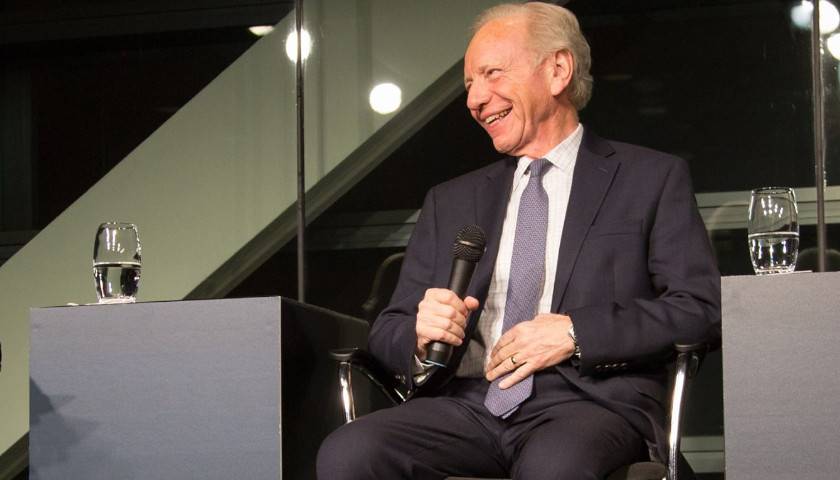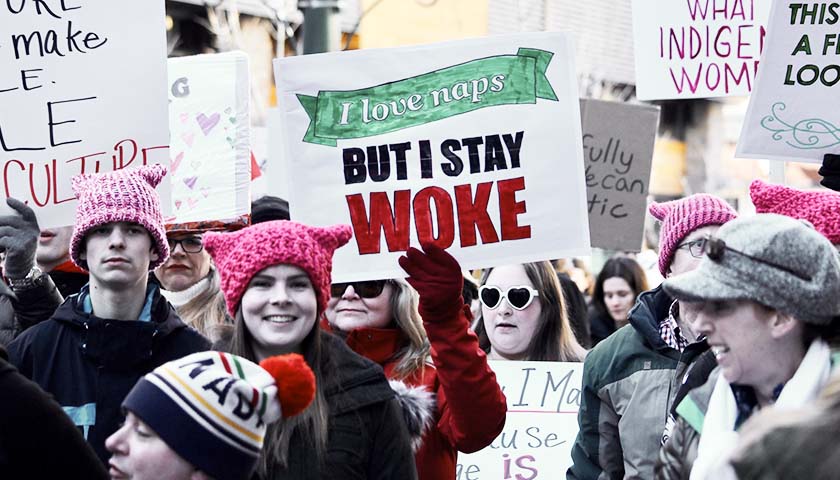I write now, in the worst pain and shock, with news of my friend Joe Lieberman’s death just moments ago. I write because I know what his critics will be quick to write, what news reports have already re-circulated.
Read MoreTag: Yale
Elite Colleges Reconsidering SAT Score Requirements
Several elite universities are considering reversing recent decisions to reduce or even eliminate requirements for application that include standardized test scores such as the SAT exams.
According to Axios, multiple colleges used the Chinese Coronavirus pandemic as an excuse to weaken the importance of SAT and ACT test scores in most student applications. But in recent weeks, several schools have reversed course; Yale is considering repealing its prior policy of making SAT/ACT requirements optional, with Dartmouth already reinstating the requirements earlier this month. MIT reversed a similar policy back in 2022.
Read MoreIvy League Study: Boosters, COVID-19 ‘Rebounds’ Fuel Skepticism of Federal Narratives
As the nation’s most powerful and twice-boosted infectious disease doctor battles a COVID-19 “rebound” two weeks after testing positive, new research from the public health schools at Harvard and Yale suggests the boosted fared worse against the first Omicron subvariant than the non-boosted.
The FDA is so alarmed by the “waning effectiveness” of boosters, whose formulation is still based on the ancestral Wuhan strain, that it asked manufacturers Thursday to add a “spike protein component” from the fourth and fifth Omicron subvariants to this fall’s boosters.
Read MoreHundreds of Yale Students Protest Free Speech Event Featuring Progressive and Conservative Speakers
A free speech event hosted at Yale University that featured both conservative and progressive speakers was shouted down last week by over 100 far-left radicals from the university’s law school.
According to the Washington Free Beacon, the panel was hosted on March 10th by the Yale Federalist Society, and featured Monica Miller of the left-wing American Humanist Association, and Kristen Waggoner of the conservative Alliance Defending Freedom. The purpose of the panel was to demonstrate that even two activists with such different political beliefs could agree on several things when it comes to the assault on freedom of speech in America today, as both groups had been involved in at least one Supreme Court case together dealing with violations of the First Amendment, when the Court sided with a Christian student in a Georgia university who was initially forbidden from preaching on campus.
Read MoreCommentary: Ground Zero of Woke
Many of our once revered and most hallowed institutions are failing us. To mention only the most significant ones: our top-ranking military echelon, the leadership of our federal investigatory and intelligence agencies, the government medical establishment—and of course the universities.
For too long American higher education’s reputation of global academic superiority has rested mostly on the sciences, mathematics, physics, technology, medicine, and engineering—in other words, not because of the humanities and social sciences, but despite them. The humanities have become too often anti-humanistic. And the social sciences are deductively anti-scientific. Both quasi-religious woke disciplines have eroded confidence in colleges and universities, infected even the STEM disciplines and professional schools, and torn apart the civic unity of the United States. Indeed, much of the current Jacobin revolution was birthed and fueled by American universities, despite their manifest hypocrisies and derelictions.
Read MoreYale Study Claims That Democrats’ ‘Anti-Racism’ Rhetoric Alienates Voters
A recent study by Yale University indicates that if the Democratic Party continues overtly promoting “anti-racism” rhetoric, it could lead to a mass alienation of their own base in upcoming elections, as reported by the New York Post.
The study was conducted by Yale’s Micah English and Joshua Kalla, whose goals with the survey were to find out “how racial attitudes shape policy preferences in the era of Black Lives Matter and increasing liberal views on racial issues.” But, utilizing an online survey method, they soon found that issues based explicitly on race where less likely to galvanize the party’s base than issues based more on economics.
To determine this, the study asked voters about various issues such as student debt cancellation, the Green New Deal, universal healthcare, and legalizing marijuana, amongst others. These issues were presented in three different ways to various respondents: They were either framed around “racial justice,” framed as “economic justice,” or explained completely neutrally. Actual rhetoric from Democratic politicians was incorporated into each method of questioning, and the issues were all emphasized as being part of the Democratic Party’s platform.
Read More





